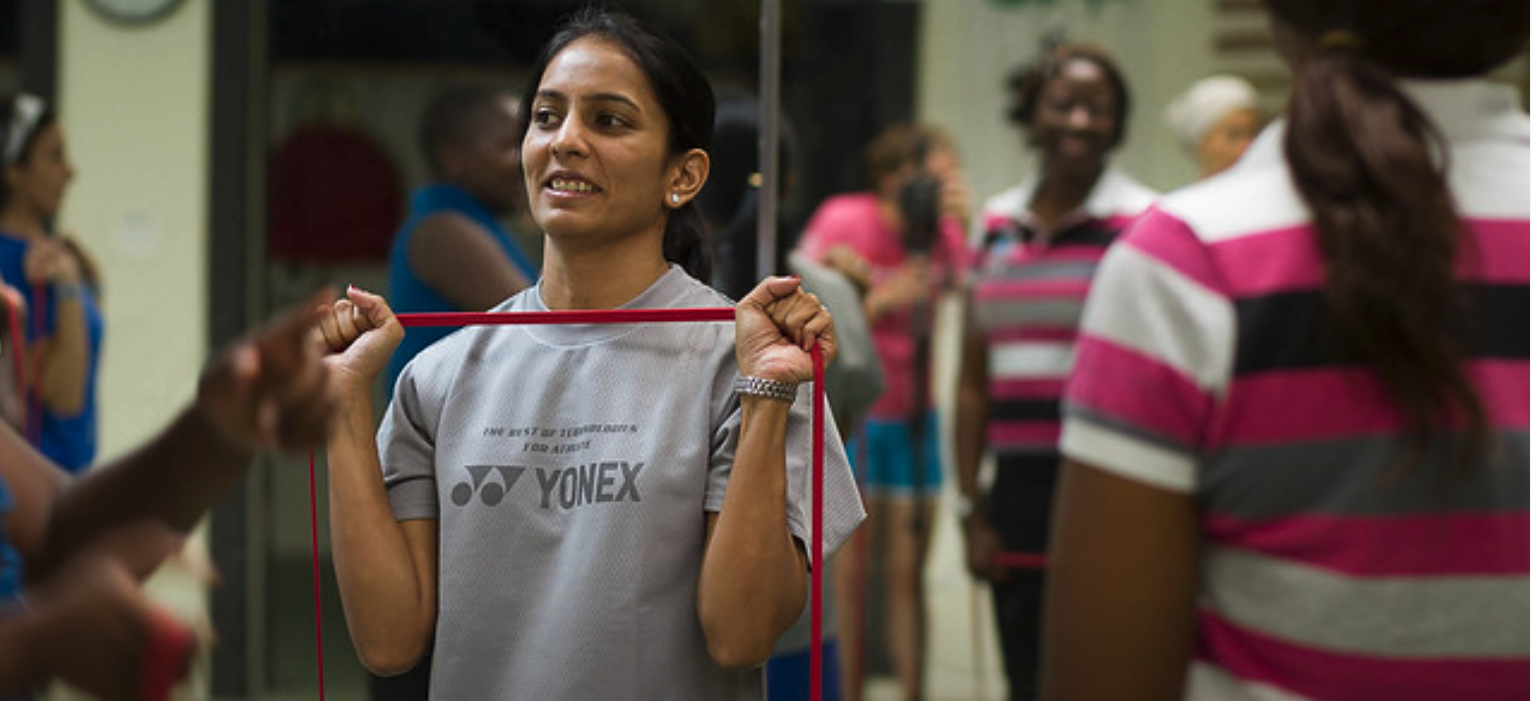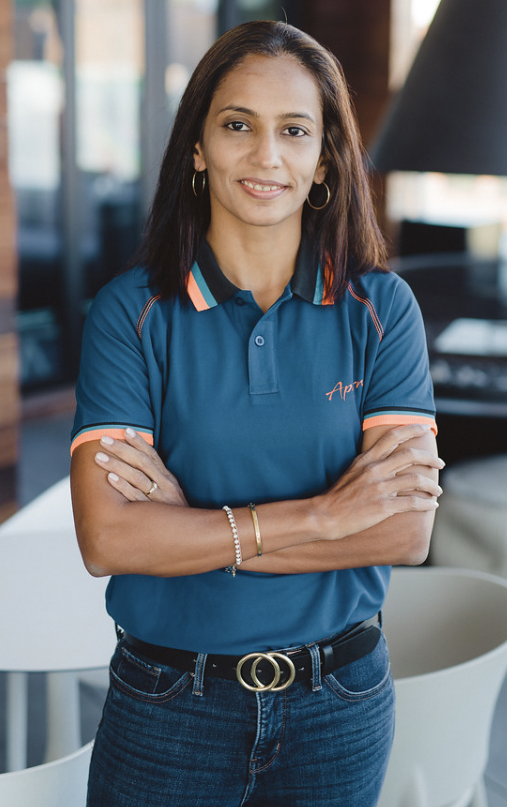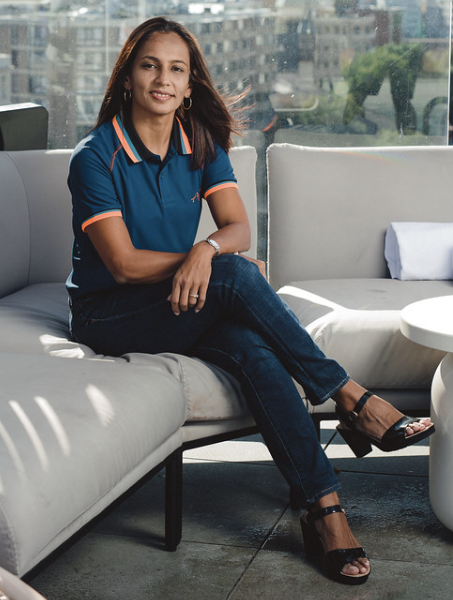
In the winter of 1982, a 4-year-old girl sat enthralled in front of India’s first sports broadcast in color—Delhi’s 9th Asian Games. “For as long as I can remember,” says Aparna Popat, “I was always able to concentrate for long periods of time and was stubborn enough to persevere until a task was finished perfectly.” The task she set herself this time: to watch the games long enough to understand them.
Aparna was inspired by the beauty and movement of the athletes, their coordination and strategy, and the thrill of competition. She decided to play every sport available to her, though she would often be the only girl on all-boys teams. At the age of eight, she chose to focus on badminton. “Mumbai has a powerful monsoon season, so I took up badminton—an indoor sport—so that I could play all year round.” She would play for the next 20 years, and, at the 1996 Junior World Championships in Denmark, Aparna won a silver medal, becoming the first Indian to medal at this event. She later became a nine-time National Champion, a record she shared with one of her coaches and renowned athlete, Prakash Padukone. She also won four medals at the Commonwealth Games, and competed at the Olympics in 2000 and 2004. More than winning, Aparna enjoyed being in constant competition with herself. “I loved the challenges in sport,” she says, “the strategy in particular.” Channeling her passion and perseverance to chase excellence each day, she tried to learn from every experience thrown her way.

Quiet and humble, Aparna will tell you that she didn’t have too many hardships in her journey, feeling that it came easy to her. Still, women’s participation in sports in rural India is much slimmer than in the country’s urban areas, especially when the region lacks a woman athlete serving as an active role model. Recreational physical activity often stops for girls when they reach puberty for fear of the “tomboy” label, with female athletes considered the antithesis of femininity. Though a women’s suffrage movement would be established in the early 1900s, it wasn’t until the 1952 Summer Olympics in Helsinki that India saw its first two women ever to compete at that level.
By 1982, when 4-year-old Aparna was becoming inspired by the wide world of sports, Indira Gandhi, India’s first and only female Prime Minister, was working to legislate better accessibility for women in sports. It wasn’t until the year 2000, when Indian wrestler Karnam Malleshwari won the bronze medal in wrestling at the Sydney Olympics, that Aparna felt a true inflection point. It seemed as if Indian society was suddenly more open to women’s participation in sport, and the press coverage of women in sports began to increase. Aparna certainly did more media interviews in the latter part of her career, and the coverage of women in sport began to shift the lens through which the country viewed this phenomenon, but still—the reporting on women athletes in the press lacked depth.
After her retirement from Badminton in 2006, Aparna found a way to merge her professional life with the world of sports by managing corporate athletes. However, India has a ways to go in supporting the reintegration of its athletes into civil society, and Aparna found herself on a lonely road. In 2012, at what seemed like just the right moment, she was selected for the very first edition of the U.S. State Department’s initiative with the University of Tennessee, called the Global Sports Mentoring Program (GSMP). Through this impactful program, she realized the importance of mentorship and suddenly became very aware of just how much it was lacking back home. She began to reframe her thinking about sport, seeing it as a way to give back. “At the end of the program, which was just one month long, we had all become like one big, empowered family with a common goal of using sport to create positive change in our communities.”

Upon her return to India, a lot changed for Aparna. She went from public-sector employee to coach, mentoring children in badminton and sportsmanship. She got involved in sports governance through the Olympians Association of India, a non-profit organization that works for the welfare of all Indian Olympic athletes, where she led an all-female team as Executive Director. Now she advocates for women in sport wherever she can in the public forum, as a TEDx speaker, on the Advisory Board for the country’s only all-woman sports scholarship program, as a mentor with the Mann Deshi Champions Program and as a collaborator with other GSMP alumni.
“Becoming empowered is recognizing that your wings already exist,” Aparna says. “You just need the confidence to fly.” In her determination to empower others, Aparna serves as a mentor whenever possible, and she will continue to advocate for sport. “I feel at home when I play sports, and I’m a firm believer in the power of sports to make the world a better place. I want to advocate for physical literacy and sports as a right for all.”